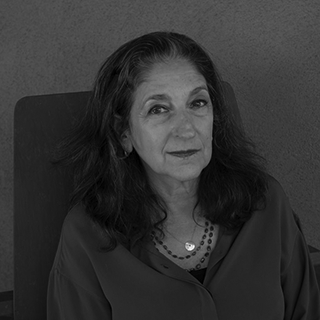Arthritis
“Save your hands,” my mother says, seeing me untwist a jar’s tight cap— just the way she used to tell me not to let boys fool around, or feel my breasts: “keep them fresh for marriage,” as if they were a pair of actual fruit. I scoffed to think they could bruise, scuff, soften, rot, wither. I look down now at my knuckly thumbs, my index finger permanently askew in the same classic crook as hers, called a swan’s neck, as if snapped, it’s that pronounced. Even as I type, wondering how long I’ll be able to—each joint in my left hand needing to be hoisted, prodded, into place, one knuckle like a clock’s dial clicking as it’s turned to open, bend or unbend. I balk at the idea that we can overuse ourselves, must parcel out and pace our energies so as not to run out of any necessary component while still alive— the definition of “necessary” necessarily suffering change over time. The only certainty is uncertainty, I thought I knew, so ignored whatever she said about boys and sex: her version of a story never mine. It made me laugh, the way she made up traditions, that we didn’t kiss boys until a certain age, we didn’t fool around. What we? What part of me was she? No part I could put my finger on. How odd, then, one day, to find her half-napping in her room, talking first to herself and then to me, about a boy she used to know, her friend's brother, who she kissed, she said, just because he wanted her to. “Now why would I do that,” she mused, distraught anew and freshly stung by the self-betrayal. So much I still want to do with my hands— type, play, cook, caress, swipe, re-trace.
Credit
Copyright © 2018 by Carol Moldaw. Originally published in Poem-a-Day on March 14, 2018, by the Academy of American Poets.
About this Poem
“The way a magnet attracts and holds disparate objects, a poem brings into its force field strands of thought and images that have been milling about. In thinking about the arthritis in my hands, I can’t help but think about my mother, who I inherited it from, as well as think about mortality. The connections that occur during writing are always unexpected and often revelatory. Here, I was surprised by the underlying intimacy between us that the poem uncovers.”
—Carol Moldaw
Date Published
03/14/2018

